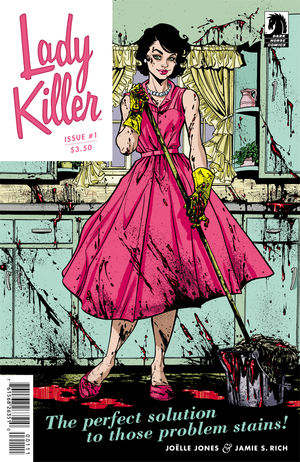| Anchor |
Aimee Bender
2010
The Summary
"On the eve of her ninth birthday, unassuming Rose Edelstein bites into her mother's homemade lemon-chocolate cake and discovers she has a magical gift: she can taste her mother's emotions in the slice. To her horror, she finds that her cheerful mother tastes of despair. Soon, she's privy to the secret knowledge that most families keep hidden: her father's detachment, her mother's transgression, her brother's increasing retreat from the world. But there are some family secrets that even her cursed taste buds can't discern."
The Good
I really liked the premise of Aimee Bender's novel. Rose's story begins when, at the age of nine, she discovers that she can detect where ingredients came from and, more to the point, how the cook felt when preparing her food. It begins with her mother: her mother--her wonderful, cheerful mother, who smiles at everyone and loves her children endlessly--is hollow, despairing of her marriage and completely, totally empty.
Bender creates a fascinating confection in Rose's story. I was immediately intrigued by The Particular Sadness of Lemon Cake, because I was curious to see where Rose's gift would lead--what would happen with her emotionally absent mother, her oblivious father, and her distant and detached brother--and I wanted to see if things would work out in the end.
It's an odd little story with an unusual style, a strange cadence that reflects in the reading, which I experienced as both an audiobook and a novel, but I think it unfolds pretty well. It's basically cut into three separate parts: Rose's childhood at the age of nine when she discovers her gift, her adolescence from twelve to fifteen as she learns how to handle her gift, and her adulthood at approximately twenty-one when her life simultaneously falls apart and begins to come together.
I was much more comfortable with the ending that I thought I might be. Truthfully, I was surprised by how much I appreciated Bender's ability to wrap up the novel and how much I actually liked the way things turned out. Granted, it's not exactly a happy ending, but I was left feeling satisfied.
The Bad
In listening to the audiobook, I realized that Rose was an unusual narrator. She has such an unusual personality that she's sometimes difficult to understand on an emotional level. She so ardently wishes to return to nine-years-old, before she was gifted with the ability to read the origins of any food, that it influences her entire development--it's like she stops growing as a character.
She feels emotionally stunted. Not just stunted, but underdeveloped. It's like she can't leave her past in the past, like she can't bring herself to adapt to her new life. Perhaps it's asking a bit much of her, considering what she must endure, but it just bothers me that she's so stuck.
It makes The Particular Sadness of Lemon Cake a difficult novel to enjoy.
The Ugly
Knowing exactly what people think and feel would be difficult for anyone to handle. For a nine-year-old girl, it must be positively traumatizing.

